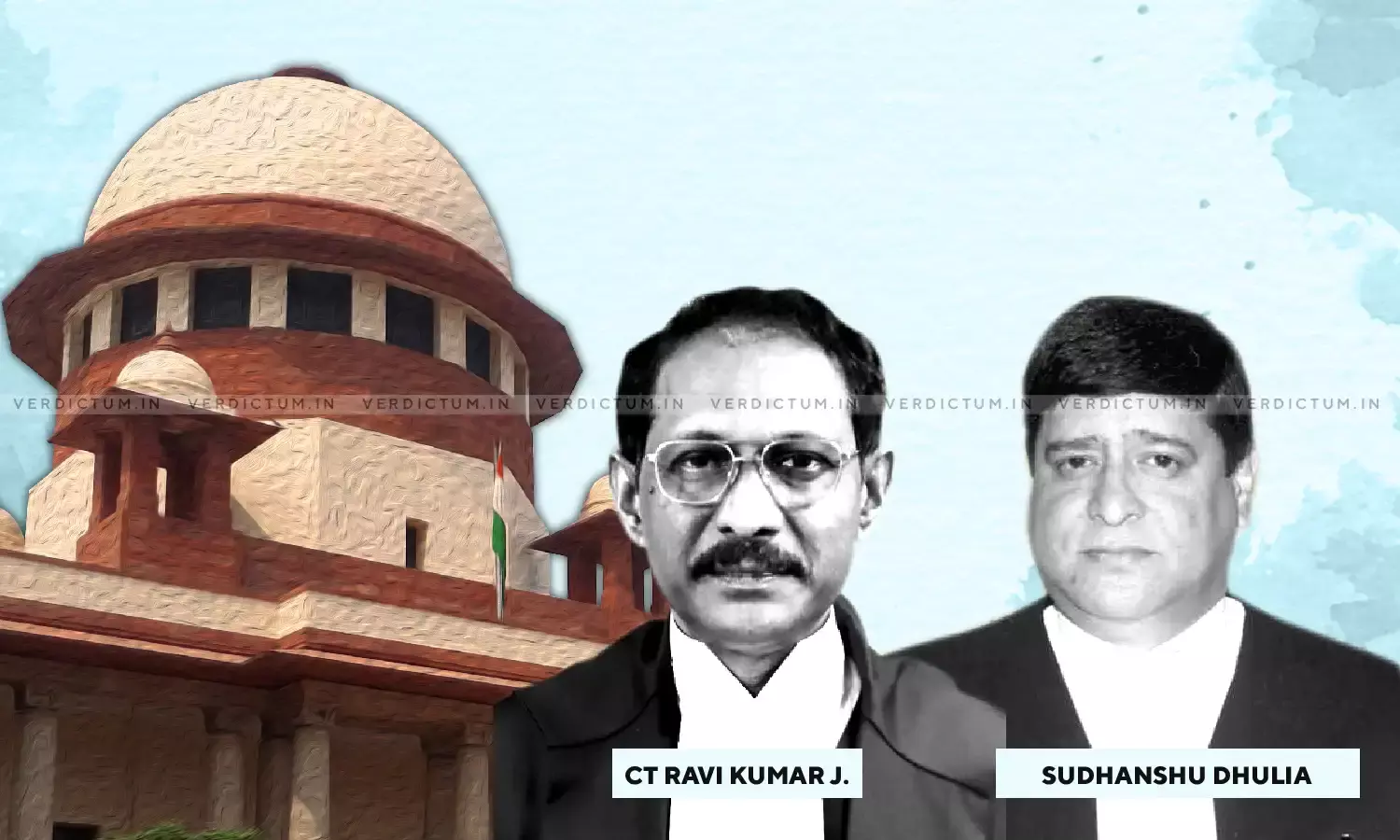Impact Of Reduction Of Convicts Pending An Appeal Due To Death Of Co-Convicts Is Different From Such Reduction Due To Acquittal: SC
The Supreme Court has observed that the effect and impact of reduction of the number of convicts pending an appeal owing to the death of co-convicts is bound to be different from the effect and impact of reduction of the number of accused or convicts on account of acquittal.
The bench of Justice C.T. Ravikumar and Justice Sudhanshu Dhulia was dealing with a case where 10 accused persons were convicted under Section 302/149, of the Indian Penal Code by the Trial Court. During the pendency of the appeal before High Court, seven of them died and consequently, qua them the Appeal was dismissed as abated.
Qua the surviving appellants – Gurmail Singh, Kewal Singh and Karnail Singh, the appeals were dismissed. When appeals were pending before the Supreme Court, Kewal Singh also died and Karnail Singh had not joined in appeal. So, the appeal survived only in the case of the first appellant – Gurmail Singh.
Advocate S. K. Verma represented the Appellant whereas Advocate Ajay Vikram Singh represented the State.
The Supreme Court observed that "…the mere fact that seven out of the ten convicts died, either during the pendency of Criminal Appeal No. 1510/1992 before the High Court or during the pendency of this appeal, could not be a reason, by that itself, to canvass non applicability of the provision for constructive/vicarious liability, arising out of the achievement of the common object by the unlawful assembly."
The Court also observed that "the term abatement or abate has not been defined in the Cr.P.C. In the said circumstances, its dictionary meaning has to be looked into. As relates criminal proceedings going by the meaning given in Black's Law Dictionary, 10th Edition, abatement means 'the discontinuation of criminal proceedings before they are concluded in the normal course of litigation, as when the defendant dies'. Thus, it can be seen that the meaning of abatement can only be taken in criminal proceedings as `discontinuation of such proceedings owing to the death of the accused/convict pending such proceedings'. In short, it would reveal that an appeal against conviction (except an appeal from a sentence of fine) would abate on the death of the appellant as in such a situation, the sentence under appeal could no longer be executed."
The Court held that "…in view of our agreement with the concurrent finding about membership of the appellant in the unlawful assembly, the appellant cannot escape from the constructive/vicarious liability for the act committed by any one of the members of that assemblage by virtue of Section 149, IPC if the common object of the unlawful assembly was to commit murder and not causing grievous injury."
The Court held that the High Court was justified in dismissing the appeal filed by the appellant herein, confirming the conviction and sentences passed against him. Accordingly, the Court dismissed the appeal.
Cause Title- Gurmail Singh & Anr. v. State of Uttar Pradesh & Anr.
Click here to read/download the Judgment












